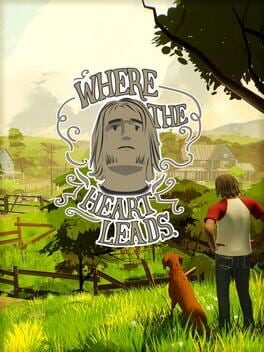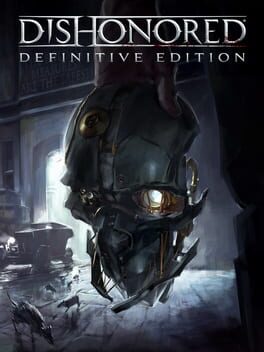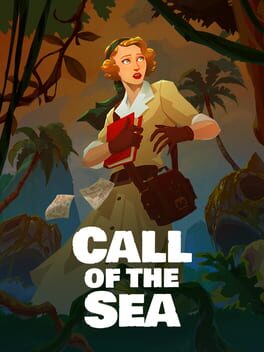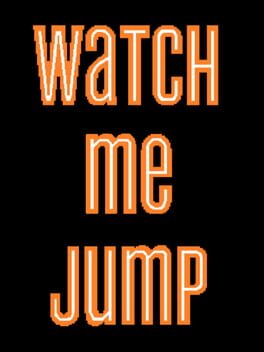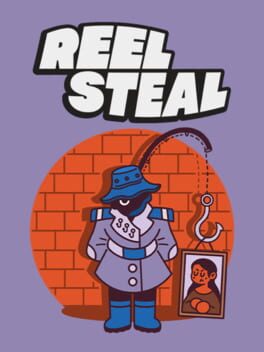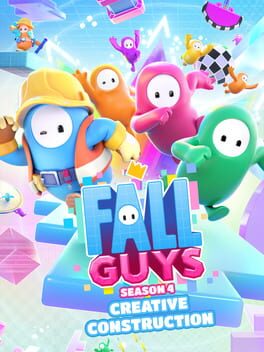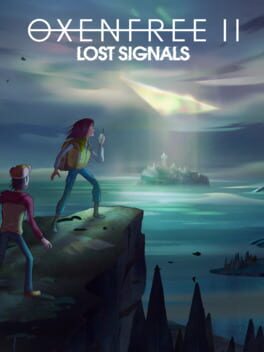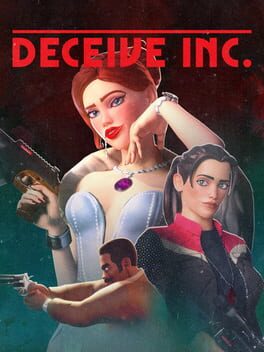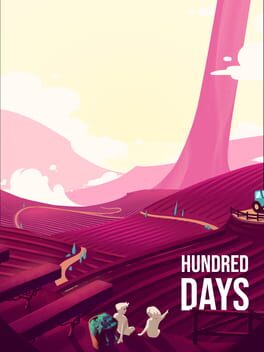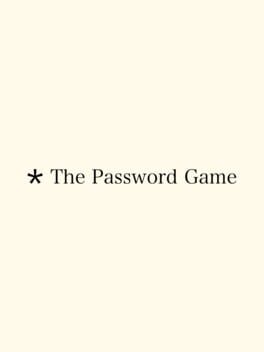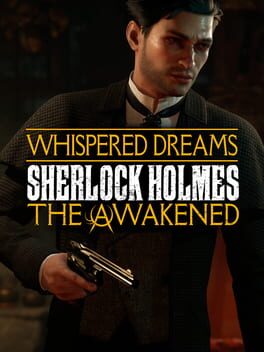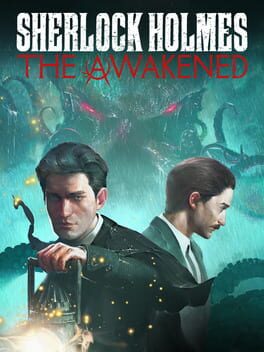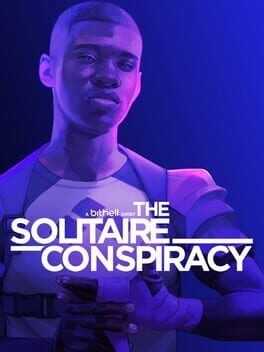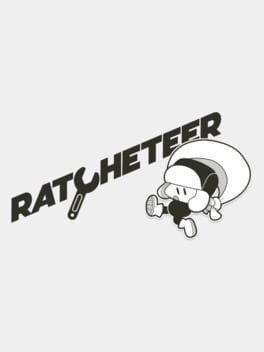CMike
BACKER
It would be easy to dismiss Where the Heart Leads as "we have Kentucky Route Zero at home" and leave it at that, but I think there's more going on here than the obvious influence KRZ had over this game.
The big draw for Where the Heart Leads is the massive amount of choices and outcomes that the game offers. It is genuinely impressive how many decisions big and small have a tangible effect on the way things can play out. The narrative itself is personal, never straying from the confines of the Anderson family and the small town of Carthage. Your choices as Whit define how his life and others play out over the span of a lifetime. Helping Whit navigate his and his wife's dreams and ambitions while also building a life for his young family led to some genuinely great and relatable moments, and the choices involved really made me sit and think about what I wanted to prioritize in Whit's life.
Though I do think that Where the Heart Leads illustrates the limits of this type of storytelling, prioritizing player choice over all else. Having all of these variables and branching paths is cool, but what meaning can there really be when all possible outcomes need to be satisfying in at least some way? Should I pursue a career that is more practical or one that is more fulfilling? Both paths are treated as reasonable, just different, smoothing over any truly hard consequences in service of this ethos. Sure, you can take things off the rails if you want to, but there's always an easily identifiable out given to get you back on track. In the end, the game's only real identifiable message seems to be a lackluster "your choices affect your life in a lot of ways."
In my playthrough, Whit Anderson lived a good life, and was a generally positive influence on the people around him. He took a few risks here and there, but in the end they all worked out. His kids turned out fine, even if they had a few struggles of their own. A life well lived, even if it was one without much to say, despite the pages and pages of text hoping to make me feel otherwise.
So, yeah, we have Kentucky Route Zero at home.
The big draw for Where the Heart Leads is the massive amount of choices and outcomes that the game offers. It is genuinely impressive how many decisions big and small have a tangible effect on the way things can play out. The narrative itself is personal, never straying from the confines of the Anderson family and the small town of Carthage. Your choices as Whit define how his life and others play out over the span of a lifetime. Helping Whit navigate his and his wife's dreams and ambitions while also building a life for his young family led to some genuinely great and relatable moments, and the choices involved really made me sit and think about what I wanted to prioritize in Whit's life.
Though I do think that Where the Heart Leads illustrates the limits of this type of storytelling, prioritizing player choice over all else. Having all of these variables and branching paths is cool, but what meaning can there really be when all possible outcomes need to be satisfying in at least some way? Should I pursue a career that is more practical or one that is more fulfilling? Both paths are treated as reasonable, just different, smoothing over any truly hard consequences in service of this ethos. Sure, you can take things off the rails if you want to, but there's always an easily identifiable out given to get you back on track. In the end, the game's only real identifiable message seems to be a lackluster "your choices affect your life in a lot of ways."
In my playthrough, Whit Anderson lived a good life, and was a generally positive influence on the people around him. He took a few risks here and there, but in the end they all worked out. His kids turned out fine, even if they had a few struggles of their own. A life well lived, even if it was one without much to say, despite the pages and pages of text hoping to make me feel otherwise.
So, yeah, we have Kentucky Route Zero at home.
I really loved the world and the ideas in Dishonored. I'm a big fan of games that give you the option to use stealth and a non-lethal approach, but the non-lethal approach here just isn't rewarding. There are limited options of how to take out enemies, and for the most part figuring out how to dispatch your targets without killing them is just a matter of talking to the right person.
Though disappointed that I didn't love Dishonored like I had hoped, I still had a pretty good time and was taken in by its world enough to be left wanting more.
Though disappointed that I didn't love Dishonored like I had hoped, I still had a pretty good time and was taken in by its world enough to be left wanting more.
2020
2018
2023
Mediatonic announced today that they are doing away with seasons, and I think that's as good of a reason as any to go ahead and write this review.
The creative mode introduced in this season is... fine? Building levels is easy enough, although it could do for some quality of life improvements. The user-created levels I've played have been mostly okay, although they all give off this sense of emptiness not found in the levels created by the devs in Unity. Hopefully this will improve as people get better at using the tools and as Mediatonic makes more tools available.
Unfortunately, discovering good creative levels is extremely difficult, and even when you find good ones they become a solitary platforming experience without a dedicated group to try levels out with. And without a good way of getting players to try out your levels aside from the one-in-a-million chance that Mediatonic decides to feature it in a playlist, there really isn't much incentive to get me to spend time making them.
As for the game itself, Fall Guys is on autopilot at this point. The same events, same rotating playlists, and no new developer-created levels. There will be new costume collaborations and Fame Passes to spend your money on, but creation of the actual in-game content has been passed down to the players.
It blows my mind that Fall Guys has been around for 3 years and that it has kept me coming back nearly every day for that entire time. It's been a great ride, even with its less than stellar free-to-play relaunch. I don't plan on totally quitting, but I've already stepped back quite a bit the last month or so and don't know that anything will really suck me back in at this point. But I do hope that it will be there for me whenever I do come back around.
The creative mode introduced in this season is... fine? Building levels is easy enough, although it could do for some quality of life improvements. The user-created levels I've played have been mostly okay, although they all give off this sense of emptiness not found in the levels created by the devs in Unity. Hopefully this will improve as people get better at using the tools and as Mediatonic makes more tools available.
Unfortunately, discovering good creative levels is extremely difficult, and even when you find good ones they become a solitary platforming experience without a dedicated group to try levels out with. And without a good way of getting players to try out your levels aside from the one-in-a-million chance that Mediatonic decides to feature it in a playlist, there really isn't much incentive to get me to spend time making them.
As for the game itself, Fall Guys is on autopilot at this point. The same events, same rotating playlists, and no new developer-created levels. There will be new costume collaborations and Fame Passes to spend your money on, but creation of the actual in-game content has been passed down to the players.
It blows my mind that Fall Guys has been around for 3 years and that it has kept me coming back nearly every day for that entire time. It's been a great ride, even with its less than stellar free-to-play relaunch. I don't plan on totally quitting, but I've already stepped back quite a bit the last month or so and don't know that anything will really suck me back in at this point. But I do hope that it will be there for me whenever I do come back around.
2023
The first season of Deceive Inc. was... pretty uninspired. Red is a great addition to the cast and really fun to play as, but the corresponding season catalog was pretty bland. The in-season updates have overall been pretty good at addressing player feedback, but not quite as game-changing as you'd hope to keep things as fresh as this game needs. Still, I'm having fun with Deceive Inc. and plan to keep it in the rotation.
2021
2023
The original Sherlock Holmes: The Awakened had always piqued my curiosity, so I was thrilled when this remake was announced. I'm happy to say that The Awakened lives up to its zany premise and has reinvigorated my love for this franchise.
The Awakened is much more of a traditional adventure game that the last several Sherlock Holmes entries from Frogwares and I think the game benefits from this scaled-down approach. There are a few more open areas to explore but they are tighter and more dense than the sprawling and empty streets of Cordona in Chapter One. Investigating and gathering clues is just as engaging as before, though I did miss the less linear conclusions of the previous games' cases. I certainly did not miss the clunky combat and action sequences of the previous titles, which are thankfully missing in this remake.
As I hinted before, the story is wild in all the best ways. This story does a much better job at presenting a young and conflicted Sherlock than Chapter One, pushing him to the absolute limit. I found John Watson especially endearing, and I hope we get to see more of this version of the character.
By bringing this new, young Sherlock Holmes back to his roots, Frogwares has produced my favorite Sherlock Holmes game since 2014's Crimes and Punishments. I have no idea how they'll continue the story from here given where things ended in The Awakened, but I'm excited to find out.
The Awakened is much more of a traditional adventure game that the last several Sherlock Holmes entries from Frogwares and I think the game benefits from this scaled-down approach. There are a few more open areas to explore but they are tighter and more dense than the sprawling and empty streets of Cordona in Chapter One. Investigating and gathering clues is just as engaging as before, though I did miss the less linear conclusions of the previous games' cases. I certainly did not miss the clunky combat and action sequences of the previous titles, which are thankfully missing in this remake.
As I hinted before, the story is wild in all the best ways. This story does a much better job at presenting a young and conflicted Sherlock than Chapter One, pushing him to the absolute limit. I found John Watson especially endearing, and I hope we get to see more of this version of the character.
By bringing this new, young Sherlock Holmes back to his roots, Frogwares has produced my favorite Sherlock Holmes game since 2014's Crimes and Punishments. I have no idea how they'll continue the story from here given where things ended in The Awakened, but I'm excited to find out.
2022
Ratcheteer is certainly the biggest game of Playdate's season one, revolving around its story and world while the others focus more on simple gameplay mechanics and loops. Because of this I don't think you'll find that Ratcheteer really does anything particularly unique in the genre, but it is a nice proof of concept that the Playdate can be a place for bigger experiences as well as smaller ones. I wasn't able to finish when I picked this up the first time due to life getting in the way, but I definitely plan on coming back.
